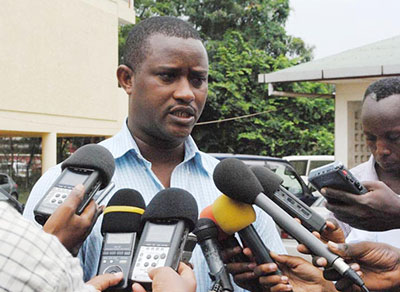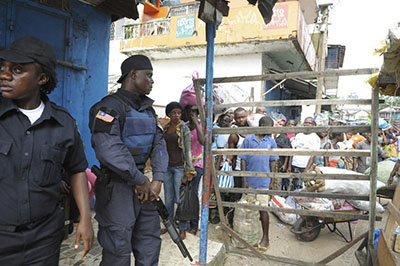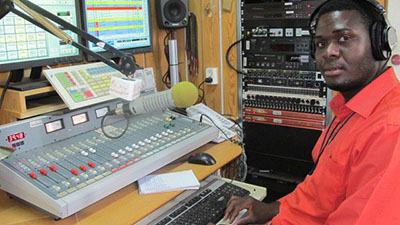Africa
2014
2014 International Press Freedom Awards
Honoring courage and perseverance Awardees from Burma, Iran, Russia, and South Africa New York, September 30, 2014–Four journalists from Burma, Iran, Russia, and South Africa will be honored with the Committee to Protect Journalists’ 2014 International Press Freedom Awards, an annual recognition of courageous reporting. These journalists have faced imprisonment, violence, and censorship.
Congo expels critical female journalist
Abuja, Nigeria, September 25, 2014–The Committee to Protect Journalists condemns Congolese authorities’ decision to expel a freelance journalist from the country and calls on them to allow her to enter the country and report freely. Before her expulsion, Sadio Kante reported receiving threats in connection with a series of stories she published on the attack…
Journalist released after being held for more than two years in Somalia
Cape Town, September 23, 2014–The Committee to Protect Journalists welcomes the release of German-American journalist Michael Scott Moore, who was kidnapped by Somali pirates in the city of Galkayo in January 2012. Moore’s abduction was not previously reported by most media outlets at the request of those seeking his release.
Journalists killed while covering Ebola education campaign in Guinea
Abuja, Nigeria, September 22, 2014–A journalist and two media workers were killed on September 16 while covering an Ebola education campaign in Guinea’s south-eastern forested region, according to news reports and local journalists.

Burundi’s journalist union takes repressive press law to court
If the state decides that a journalist’s article in Burundi jeopardizes someone’s “moral integrity” under the country’s Media Law it can demand that the journalist reveals sources, and it can suspend the publication. “It’s a backwards, freedom-killing law,” said Alexandre Niyungeko, the founder and head of the 300-member Burundi Union of Journalists. Despite the press…
Armed men attack journalist in Brazzaville, Congo
Abuja, Nigeria, September 12, 2014–The Committee to Protect Journalists calls on authorities in the Congo to apprehend the perpetrators of an attack on Wednesday against a journalist in his home in Brazzaville. Elie Smith was threatened and held at gunpoint by unidentified men who he said also attacked his sister, according to news reports.

In attempts to contain Ebola, Liberia censors its press
With the Ebola epidemic predicted to get worse, the Liberian government has taken action to silence news outlets critical of its handling of the health crisis which, according to Liberia’s Information Ministry, has claimed more than 1,000 lives in the country since March. Publishers have been harassed and forced to cease printing, and journalists were…

Radio Miraya journalist held for two weeks without charge in South Sudan
Nairobi, September 9, 2014–Authorities in South Sudan must present journalist George Livio to a court or release him, the Committee to Protect Journalists said today. The reporter for Radio Miraya, a U.N.-backed station, has been held without charge by security forces for more than two weeks, according to local journalists and news reports.
Radio stations briefly jammed in Lesotho amid attempted coup
On August 30, 2014, the Lesotho military took control of police headquarters, jammed radio and television stations as well as telephone lines, and handed control of the tiny landlocked country to its deputy prime minister, according to news reports. Prime Minister Thomas Thabane fled to safety in South Africa for four days.